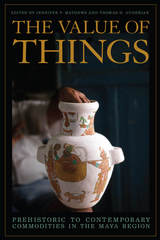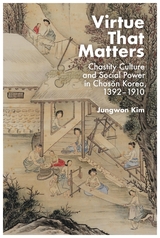
Professor Leahy recounts the academic tensions between religious beliefs and intellectual inquiry, and explore the social changes that have affected higher education and American Catholicism throughout this century. He attempts to explain why the significant growth of Catholic colleges and universities was not always matched by concomitant academic esteem in the larger world of American higher education.

The Roman Catholic Church's first significant legislative enactment on the nature and role of the Catholic university, the apostolic constitution Ex corde Ecclesiae (1990) grew out of thirty years of dialogue between ecclesiastical authorities and academic representatives. The final document affirms the explicit Catholic identity of Catholic educational institutions and outlines provisions for maintaining that identity; the questions of how to implement its provisions have in turn created the need for more dialogue and examination. In this volume, distinguished scholars and legal experts define the key questions and explore the future implications of Ex corde for American Catholic colleges and universities.
The assertion of the Catholic identity of Catholic institutions of higher education prompts the contributors to examine the definition of Catholic education as a special synthesis of the religious and the academic, of faith and reason; and to discuss corollary issues such as secularization; the counter-cultural features of Catholic education; and the great diversity of such schools in the United States and of their sponsoring religious orders. The contributors probe the schools' relationships with the Church hierarchy, exploring in particular the role of the bishops, the degree of autonomy from ecclesiastical control, and questions of academic freedom. They also consider specific legal issues that American Catholic colleges must face, including recognition of student groups, tenure and promotion decisions, governance, student and faculty conduct, and the relationship between canon and civil law, including compliance with national and local civil rights provisions. This volume also includes the complete text in English of Ex corde Ecclesiae and the preliminary draft of ordinances from the Ex corde Ecclesiae Implementation Committee of the National Conference of Catholic Bishops.
Appearing at a time when universities must face major issues of their own identity and governance, this volume will be of interest to all faculty and administrators, diocesan authorities and legal counsel, and everyone concerned with the future of Catholic higher education.

The remarkable development of the Catholic university in the United States has raised issues about its continued identity, its promise, and its academic constituents. Michael J. Buckley, SJ, explores these questions, especially as they have been experienced in Jesuit history and contemporary commitments.
The fundamental proposition that grounds the Catholic university, Buckley argues, is that the academic and the religious are intrinsically related. Academic inquiry encourages a process of questioning that leads naturally to issues of ultimate significance, while the experience of faith is towards the understanding of itself and of its relationship to every other dimension of human life. This mutual involvement requires a union between faith and culture that defines the purposes of Catholic higher education. In their earliest and normative documents, Jesuit universities have been encouraged to achieve this integration through the central role given to theology.
Buckley explores two commitments that implicate contemporary Catholic universities in controversy: an insistence upon open, free discussion and academic pluralism—to the objections of some in the Church; and an education in the promotion of justice—to the objections of some in the academy.
Finally, to strengthen philosophical and theological studies, Buckley suggests both a "philosophical grammar" that would discover and study the assumptions and methods involved in the various forms of disciplined human inquiry and a set of "theological arts" founded upon the more general liberal arts.
Entering into the contemporary discussion about the Catholic university, this book offers inspiring and thought-provoking ideas for those engaged in Catholic higher education.

Until the suppression of the Society of Jesus in 1773 by Pope Clement XIV, the Jesuits had been the undisputed “schoolmasters of Europe.” In France, especially, the educational system of the Society had attained its most widespread development and its greatest fame. The nineteenth-century colleges, formed after the revival of the Society in 1814, never reached the number, size, or influence of their predecessors; but for their time and for the new obstacles they faced, these schools were important. Founded during a period of growing secularization, they faced the constant threat of political attack. Indeed, both their admirers and their critics believed that the Jesuit schools fostered in their graduates distinctive attitudes toward state and society.
John W. Padberg, S.J., has written the first full-length study of these colleges, from their revival in 1815 to their suppression in 1880. Drawing almost exclusively on archival material not previously utilized, Father Padberg places his study against the background of anti-clericalism, revolution, the Second Empire, and the first decade of the Third Republic. He describes the founding of the schools; their resources; their curriculum structure and content; their inner life—religious practices, the daily order, the social structure; and their relation to the political and social milieu of the times. He also discusses the backgrounds and ideological orientations of the faculty and students.
The author first portrays life in the semi-clandestine seminary schools in France from 1815 to 1828. He then depicts the experiences of the exile colleges on the borders of France. With the passage of the Falloux Law of 1850, Jesuit colleges became legal in France for the first time since the 18th century. Father Padberg describes the subsequent rush to found new schools and the resultant problems of lack of personnel, financial crises, and governmental suspicion. He discusses in detail the inner lives of these seventeen new colleges.
During the early years of the Third Republic, the Jesuits founded eleven more colleges. But the mutual fear and misunderstanding between the Society and the Republic and the growing anti-clericalism of the government came to a climax in 1880, when Jules Ferry expelled the Jesuits from these institutions and made impossible their control over any such schools in France.
Father Padberg concludes that during these sixty-five years the French Jesuit schools had little room to maneuver. Externally, government suspicion and hostility circumscribed them. Internally, they reacted to this hostility, which antedated the French Revolution, by the inability to adapt to contemporary circumstances their commitment to the values of a humane and Christian education.

Catholic colleges and universities have achieved a prestigious place in American higher education, but at the risk of losing their religious identity. This book confronts challenges facing all members of the college community, from presidents and trustees through the faculty and deans to student-life professionals, in making a renewed commitment to that mission.
Developing the vision of Catholic higher education expressed in the Vatican statement Ex Corde Ecclesiae, these essays provide a framework for enhancing Catholic identity across the campus and in the curriculum. The contributors address significant aspects of the culture of Catholic higher education in order to prescribe the best practices that can help colleges and universities maintain their distinctive religious character and ethical vision.
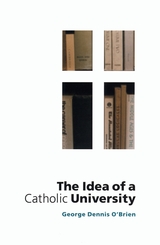
Truth is a central concept for both university and church, and O'Brien's book is built on the idea that there are different areas of truth—scientific, artistic, and religious—each with its own proper warrant and "method." In this light, he argues that one can reverse Shaw's comparison and uncover academic dogma and Christian freedom, university "infallibility" and dogmatic "fallibility."
Drawing on theology and the history of philosophy, O'Brien shows how religious truth relates to the work of a Catholic university. He then turns to the current controversies over Pope John Paul II's recent statement, Ex Corde Ecclesiae, which seeks to make Catholic universities conform to the church's official teaching office. O'Brien rejects the conventional "institutional-juridical" model used by the Vatican as improper both to faith and academic freedom. He argues for a "sacramental" model, one that respects the different kinds of "truth"—thus preserving the integrity of both church and university while making their combination in a Catholic university not only possible but desirable. O'Brien concludes with a practical consideration of how the ideal Catholic university might be expressed in the actual life of the contemporary curriculum and extracurriculum.
For anyone concerned about the place of religion in higher education, The Idea of a Catholic University will be essential reading.
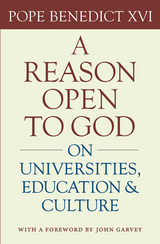
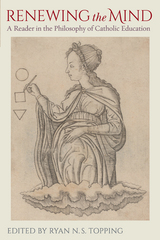
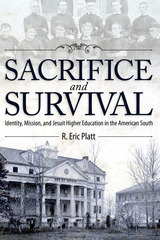
R. Eric Platt examines in Sacrifice and Survival the history and evolution of Jesuit higher education in the American South and hypothesizes that the identity and mission of southern Jesuit colleges and universities may have functioned as catalytic concepts that affected the “town and gown” relationships between the institutions and their host communities in ways that influenced whether they failed or adapted to survive.
The Catholic religious order known as the Society of Jesus (Jesuits) manages a global network of colleges and universities with a distinct Catholic identity and mission. Despite this immense educational system, several Jesuit institutions have closed throughout the course of the order’s existence. Societal pressures, external perceptions or misperceptions, unbalanced curricular structures rooted in liberal arts, and administrators’ slow acceptance of courses related to practical job seeking may all influence religious-affiliated educational institutions. The religious identity and mission of these colleges and universities are fundamentals that influence their interaction with external environs and contribute to their survival or failure.
Platt traces the roots of Jesuit education from the rise of Ignatius Loyola in the mid-sixteenth century through the European development of the Society of Jesus, Jesuit educational identity and mission, the migration of Jesuits to colonial New Orleans, the expulsion of Jesuits by Papal mandate, the reorganization of Jesuit education, their attempt to establish a network of educational institutions across the South, and the final closure of all but two southern Jesuit colleges and a set of high schools.
Sacrifice and Survival explores the implications of the Galveston Hurricane of 1900, yellow fever, Georgia floods, devastating fires, the Civil War, the expansion of New Orleans due to the 1884 Cotton Centennial Exposition, and ties between town and gown, as well as anti-Catholic/anti-Jesuit sentiment as the Society of Jesus pushed forward to create a system of southern institutions. Ultimately, institutional identity and mission critically impacted the survival of Jesuit education in the American South.

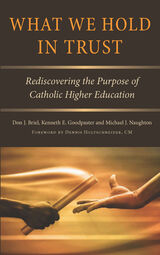

Catholic institutions of higher learning are at a crossroads: How can they remain true to their roots while recognizing that many of their administrations, faculties, and student bodies have little connection with the tradition? How can these institutions remain competitive while maintaining a relationship to the Church?
During the past several years Catholic theologian John C. Haughey, SJ, has conducted groundbreaking research on these questions. He has done this in tandem with a team of Catholic scholars from around the United States. Haughey has also conducted numerous workshops with faculty at a dozen Catholic colleges and universities to learn firsthand about their research and teaching aspirations. Those relationships and conversations provide the foundation for this book’s many insights.
In Where Is Knowing Going? Haughey explores what constitutes the Catholic identity of Catholic colleges and universities. Going beyond a doctrinal understanding of Catholic identity to one that engages and is engaged by the intellectual tradition of Catholicism, Haughey does not find that the issue of Catholic identity is adequately dealt with by marketing the distinctive identities of institutions in terms of their founding religious orders or saints. He provides a sure-handed process whereby the pursuits of individual faculty can be better aligned with the formal mission of the institution.
READERS
Browse our collection.
PUBLISHERS
See BiblioVault's publisher services.
STUDENT SERVICES
Files for college accessibility offices.
UChicago Accessibility Resources
home | accessibility | search | about | contact us
BiblioVault ® 2001 - 2025
The University of Chicago Press




